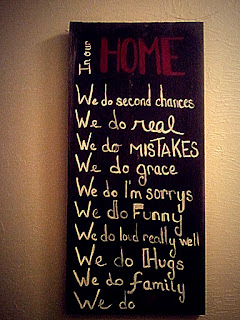How often do we hear, “Millennials have it so good”? This usually comes with a spoken, or unspoken statement that they are spoiled. Interestingly enough, they didn’t spoil themselves! The “Me” Generation spoiled them. The “Me” generation spoiled the “We” generation.
Here’s the reality—they don’t have “everything” so good. They simply have a different set of problems they have to deal with. Being a Twenty-Something is not like watching an episode of Friends. Most Millennials go through an interesting combination. There is the excitement of this defining decade coupled with the pressure to figure out their entire life. Yes, the thrill of the world before them is accompanied by worry, disillusionment, and disappointment. At age 25 they are having their crisis. The Boomers have their midlife crisis, and the Millennials their quarter-life crisis. But is it really a crisis?
Have you forgotten puberty? I personally would love to forget it—the mood swings, the voice change, the awkwardness, and the acne. Yet we made it through! But we don’t call adolescence a crisis. Why? Because it’s a part of the journey that we’ve come to accept. So a Boomer midlife crisis, or a Millennial quarter-life crisis is as normal as puberty. My point? No need to panic. It’s a “normal” part of the journey.
So Millennials have problems they face. They might not be all that different. They simply express them differently based on their upbringing. No matter what generation we are from we all want stability. We all want to be kind and be treated kindly. And which one of us does not want a sense of wellbeing? As I wrote in my previous blog (Millennials: Are They Really That Different?), we all have a sense of entitlement to a certain degree. The difference is the older generation thinks they earned it and that the younger generation didn’t. And don’t we all admire people who want to excel? So we’re not all that different. We simply express it differently because of our value formation during our formative years (10-25).
As far as the economy, Baby Boomers are hit harder than Millennials. 50% of Boomers have been affected negatively. Real estate and manufacturing have gone down. These are Baby Boomer jobs and issues. Yet we see internet advertising jobs on the rise. Health care is on the rise. IT is on the rise. These are Millennial jobs and issues. The Economy for Generation X was in many ways tougher than the one Millennials are graduating into. One reason for this is because more than 70% of Twenty-Somethings live with their parents after graduation. So if your child is in college, don’t sell their furniture on e-bay.
Millennials are not forced to take menial jobs. This is one of the things that bring out the “they-have-it-made” charge. They live at home and therefore can afford to wait. From our research we know that they want meaningful work with a high learning curve. Along with this, the barriers to starting their own businesses have been removed. They can create a business with a URL and send it to 500 of their friends. No other generation has ever been able to do that. Yes, there are entry-level jobs at banks and restaurants, but they are not forced to take them like previous generations.
So my advice to Millennials? Take anxiety and regret and shove it……into the present! Expect to have 5 jobs before you figure out what you want. Don’t fret and worry about not being in the “right” job. Anxiety lives in the future, as you anticipate something that has yet to happen. Regret (and it’s first cousin, depression), lives in the past, as you are saddened over things that you did or didn’t do. Checklists are fine, but the dark side for “checklisters” is that they are prone to worry and regret. I know this for a fact because I am one.
So when you are in that job and you’re not sure you like it, don’t panic. It’s a part of the journey. You are learning what you like and don’t like. The job you’re in is not necessarily the end game. But are you learning on the job?
My niece graduated from a prestigious university. She won the history award for her discipline. She then went on to law school. After graduation a job offer came her way and she found herself for the next 2 years in the “salt mines” of a law firm in New York City. Writing briefs and other “adventures” for 60 plus hours a week was not her idea of paradise! In those 2 years she learned a lot. She had a better idea of what she liked and disliked. She went on to get an advanced degree in history and is using her innate and acquired talents working for a large nonprofit organization.
There are tradeoffs in any job. If you are in a big company, you discover that you have stability. See how it fits your style and temperament. On the other hand, a startup is unstable. Know and feel the tradeoffs. Nonprofits have a different style of governance and policy. Autonomy and flexibility often come with a lack of stability. Stable companies often come with a lack of autonomy and flexibility.
If you get 2 or more offers that you like, then my advice is to make your pick according to the manager or boss. People join companies and leave managers. Having a good manager is more important than the company you work for. Remember, you should be adding value by contributing to the company. But you are also learning. It’s important to work for someone who is concerned about your learning curve and career path. The sooner you figure out what you want the better it will be for you. One researcher*, puts it this way, “We can’t guess what we know how to do.” His point? You have to do something before you know that you know how to do it. His analysis is that people have to do 5 things after college before they figure out what they want to do.
This might be new to the workplace, but it’s not new to life. All of us are programmed to try different things to discover what we want. And it’s in this sense that we all have it made.









































